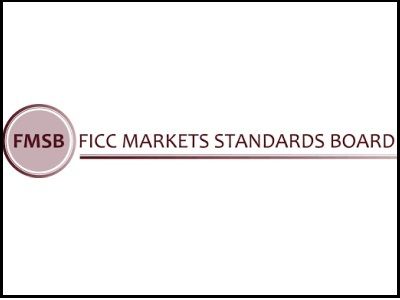When the FICC Markets Standards Board (FMSB) was set up last year to improve standards of conduct and practice in the wholesale financial markets, the impetus behind the new body came squarely from market practitioners.
The idea was a key recommendation from the Market Practitioners Panel (MPP), which contributed to the UK Government’s Fair and Effective Markets Review (FEMR). The MPP felt it imperative that participants in financial markets, working together, take responsibility for addressing the type of conduct failings highlighted by the Libor and Forex scandals. This proposal was then included in the FEMR recommendations.
Of course, such has been the intensity of new rulemaking and regulatory change since the financial crisis, that another new initiative to improve behaviour is bound to be greeted with scepticism in some quarters.
This scepticism is certainly reflected in Keith Mullin’s recent column about the FMSB (FICC standards board: another body to clog up the works), in which he describes market standards bodies as “the hippies of the new banking ecosystem” and questions whether they have a place.
Those of us involved with the FMSB are certainly under no illusions about the scale of the challenge we face. Wholesale markets are complex, sophisticated mechanisms. Market structure is continually evolving, products and trading practises are subject to constant innovation and practitioners are already struggling to digest the impact of post-crisis regulatory initiatives. Trying to write detailed regulatory rules to govern conduct in these markets is a nigh impossible task. The result is invariably to impose excessive costs and rigidity, which impair the effectiveness of markets for users. Rather, what is needed is authoritative but practical standards, agreed by all, to guide market practice.
The high-level backing for the FMSB from the financial industry and its users as well as from the public authorities is evidence that all these groups see this as a much better way forward.
Standards
Standards are needed to address the gap between the high-level conduct principles set by the regulator and day-to-day market practice. As recent history has demonstrated, there are many grey areas in wholesale markets where practices are opaque and traders and sales people are not always clear what is good practice. For instance, at what point is it acceptable for a trader acting as principal to hedge a client order, given that hedging might affect the market price at which the order is executed? Even the terms of engagement in wholesale financial markets are not always clear to sophisticated users such as corporates or the buyside.
Attempts have been made to address these kinds of issues before through practitioner-led standards. There are existing codes and standards in place to govern conduct in some parts of the markets and the FMSB has no intention of reinventing the wheel. Where there are suitable standards already in existence, it will not seek to duplicate them. But unfortunately the codes and standards already in place were not enough to prevent the shocking misconduct which has emerged in recent years.
So why should the FMSB make a difference? There are several important reasons why leading players in the markets felt that creating a new body was the best way forward.
First, the FMSB has no other function than setting standards. It is not a trade body and does not represent or lobby for the industry. It is therefore free from potential conflicts of interest. It does work closely with industry bodies, as it does with market regulators and the authorities, but it is independent of all.
Second, the FMSB represents the interests of all market users. Its membership is drawn from across the world and brings together the entire market ecology in a way no other existing bodies do. Corporate users of the markets such as Royal Dutch Shell and Unilever are represented as are leading asset managers such as Legal & General Investment Management, Blackrock and State Street. Then there are the big investment banks and the market infrastructure providers such as exchanges and custodians. This broad and international membership really reflects the global nature of these markets and the multiple parties who depend on their integrity.
When market users, such as corporates or buyside clients, require banks and broker-dealers to follow FMSB standards, they will create a powerful incentive for firms to adhere to them.
Third, the FCAs and PRAs new senior managers regimes (SMR) now create much clearer responsibilities for firms and their senior management to organise and manage their businesses appropriately. Ensuring that they comply with all applicable market standards, as well as with formal regulation, will be crucial for trading and sales firms. The FMSBs market standards will therefore be a vital tool for these firms in demonstrating compliance with the SMR.
Fourth, the UK authorities, including Mark Carney, the Governor of the Bank of England, the Treasury and the FCA, have made it very clear that they want the FMSB to succeed.
Tough job
The FMSB has a tough job and, like any new organisation, we have to demonstrate that we can do it effectively. This will require us to work with existing setters of high-quality standards where it makes sense to do so. We have a Convergence Group within the FMSB to oversee this and, over time, this will strengthen the take up and application of a rigorous code for these markets.
The responsibility for ensuring high standards of conduct in the markets lies with member firms and the individuals who run them. But if the financial industry fails to take this opportunity to raise standards, there is no doubt what the alternative will be: more detailed, intrusive, statutory regulation with all the consequences that follow.
– Elizabeth Corley is Interim Chair of the FICC Markets Standards Board and will be succeeded by Mark Yallop in July.
